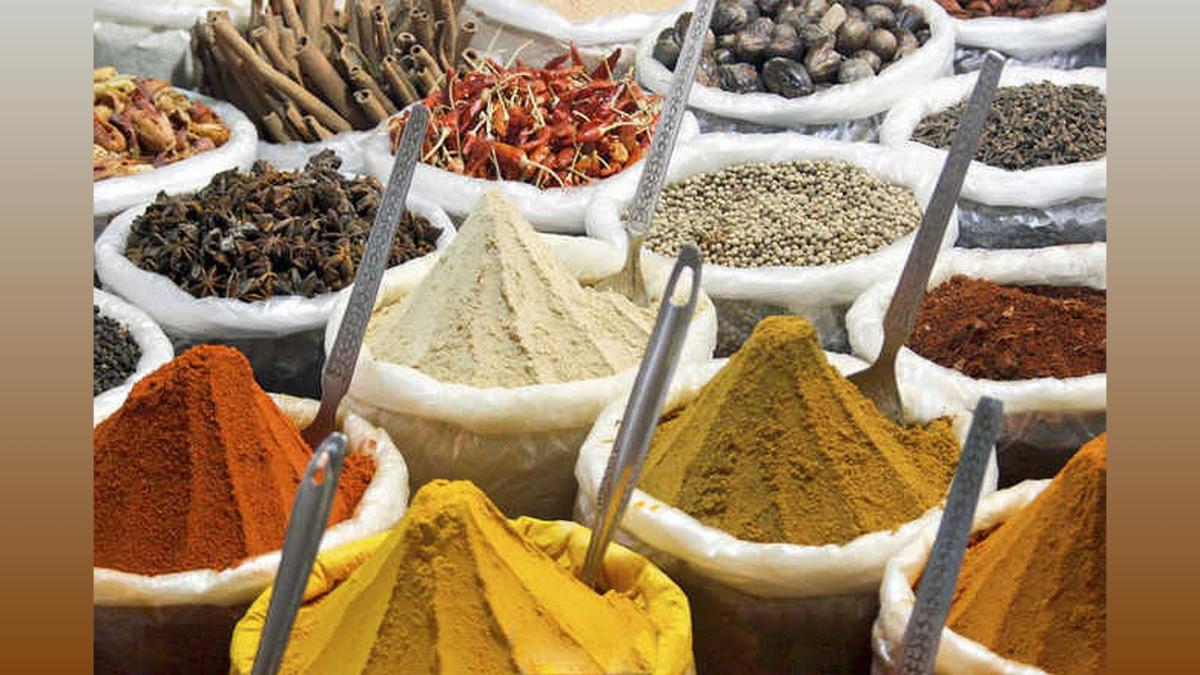India Issues Guidelines to Prevent EtO Contamination in Spices
India has issued detailed guidelines to prevent ethylene oxide (EtO) contamination in spices for exports, following recent recalls of Indian spice brands in Singapore and Hong Kong.

New Delhi, May 20 (PTI) India has come out with detailed guidelines to prevent EtO (ethylene oxide - a carcinogenic chemical) contamination in spices for exports, an official said on Monday.
The government has put in place other preventive measures like mandatory testing of spices being exported to Singapore and Hong Kong, the official added.
The steps assume significance amid reports on the recall of two Indian spice brands' -- MDH and Everest -- products in Singapore and Hong Kong due to the presence of EtO residue in certain spices.
"Mandatory pre-shipment sampling and testing for EtO for Singapore and Hong Kong has been started; and guidelines have been put in place for all exporters to avoid possible contamination of EtO covering all stages (sourcing, packaging, transportation, testing) of supply chain, for all jurisdictions," the official said.
The official added that periodic sampling is also being done from exporters by the Spices Board based on which corrective measures are enforced.
Explaining the issue, another official said that in food products, there is a certain degree of failure of samples, and India's sample failure is less than 1 per cent.
"In 2023-24, 99.8 per cent of around 1.4 million tonnes of spices have met quality requirements of different countries, and only 0.2 per cent of all consignments were non-compliant," the official said.
On the other hand, 0.73 per cent of imported food consignments were non-compliant. There is a drastic decline in alerts on Indian food commodities export to the European Union on account of EtO.
Further, most of the countries have different MRLs (minimum residue limits) for EtO. For example, while the EU has fixed this limit to 0.02 to 0.1 mg per Kg, Singapore's limit is 50 mg per Kg and Japan has 0.01 mg per Kg.
Different countries fix their own MRLs for pesticides based on their country-specific good agricultural practices (GAP) and dietary consumption patterns. There is no international standard for Ethylene Oxide.
Ethylene Oxide, because of its volatile nature, leaves no traces, and if not
aerated, soon converts into choloro ethylene (CE) in products.
European Food Safety Authority (EFSA) could not conclude on the genotoxicity and carcinogenicity of 2-CE and therefore no safe level could be derived and a standard risk assessment could not be performed.
"Impact of EtO residue and 2-CE presence in food is not a settled issue," the official said.
Ethylene oxide is often used in the food industry to reduce bacterial load, yeast and mould, and coliforms, as a fumigant.
"Indian food is more compliant to global norms and our rejection rate is very low. There has been a drastic decline in alerts on Indian food consignments and a lot of work has been done in that direction," the official said.
In 2023-24, India's spice exports totalled USD 4.25 billion against 3.7 billion in 2022-23. India's exports account for a 12 per cent share of the global spice exports.
The major spices exported from India include chilli powder, which topped the list with USD 1.3 billion in exports, followed by cumin at USD 550 million, turmeric at USD 220 million, cardamom at USD 130 million, mixed spices at USD 110 million, and spice oils and oleoresins at USD 1 billion.
Other notable exports were asafoetida, saffron, anise, nutmeg, mace, clove, and cinnamon.
The government has put in place other preventive measures like mandatory testing of spices being exported to Singapore and Hong Kong, the official added.
The steps assume significance amid reports on the recall of two Indian spice brands' -- MDH and Everest -- products in Singapore and Hong Kong due to the presence of EtO residue in certain spices.
"Mandatory pre-shipment sampling and testing for EtO for Singapore and Hong Kong has been started; and guidelines have been put in place for all exporters to avoid possible contamination of EtO covering all stages (sourcing, packaging, transportation, testing) of supply chain, for all jurisdictions," the official said.
The official added that periodic sampling is also being done from exporters by the Spices Board based on which corrective measures are enforced.
Explaining the issue, another official said that in food products, there is a certain degree of failure of samples, and India's sample failure is less than 1 per cent.
"In 2023-24, 99.8 per cent of around 1.4 million tonnes of spices have met quality requirements of different countries, and only 0.2 per cent of all consignments were non-compliant," the official said.
On the other hand, 0.73 per cent of imported food consignments were non-compliant. There is a drastic decline in alerts on Indian food commodities export to the European Union on account of EtO.
Further, most of the countries have different MRLs (minimum residue limits) for EtO. For example, while the EU has fixed this limit to 0.02 to 0.1 mg per Kg, Singapore's limit is 50 mg per Kg and Japan has 0.01 mg per Kg.
Different countries fix their own MRLs for pesticides based on their country-specific good agricultural practices (GAP) and dietary consumption patterns. There is no international standard for Ethylene Oxide.
Ethylene Oxide, because of its volatile nature, leaves no traces, and if not
aerated, soon converts into choloro ethylene (CE) in products.
European Food Safety Authority (EFSA) could not conclude on the genotoxicity and carcinogenicity of 2-CE and therefore no safe level could be derived and a standard risk assessment could not be performed.
"Impact of EtO residue and 2-CE presence in food is not a settled issue," the official said.
Ethylene oxide is often used in the food industry to reduce bacterial load, yeast and mould, and coliforms, as a fumigant.
"Indian food is more compliant to global norms and our rejection rate is very low. There has been a drastic decline in alerts on Indian food consignments and a lot of work has been done in that direction," the official said.
In 2023-24, India's spice exports totalled USD 4.25 billion against 3.7 billion in 2022-23. India's exports account for a 12 per cent share of the global spice exports.
The major spices exported from India include chilli powder, which topped the list with USD 1.3 billion in exports, followed by cumin at USD 550 million, turmeric at USD 220 million, cardamom at USD 130 million, mixed spices at USD 110 million, and spice oils and oleoresins at USD 1 billion.
Other notable exports were asafoetida, saffron, anise, nutmeg, mace, clove, and cinnamon.
You May Like To Read
TODAY'S MOST TRADED COMPANIES
- Company Name
- Price
- Volume
- Vodafone-Idea-L
- 11.65 (+ 3.56)
- 106772451
- Alstone-Textiles
- 0.28 ( -3.45)
- 44187760
- Mangalam-Industrial
- 0.88 ( -2.22)
- 39177573
- Sunshine-Capital
- 0.27 (+ 3.85)
- 35956340
- GMR-Airports
- 104.40 (+ 6.37)
- 30453005





